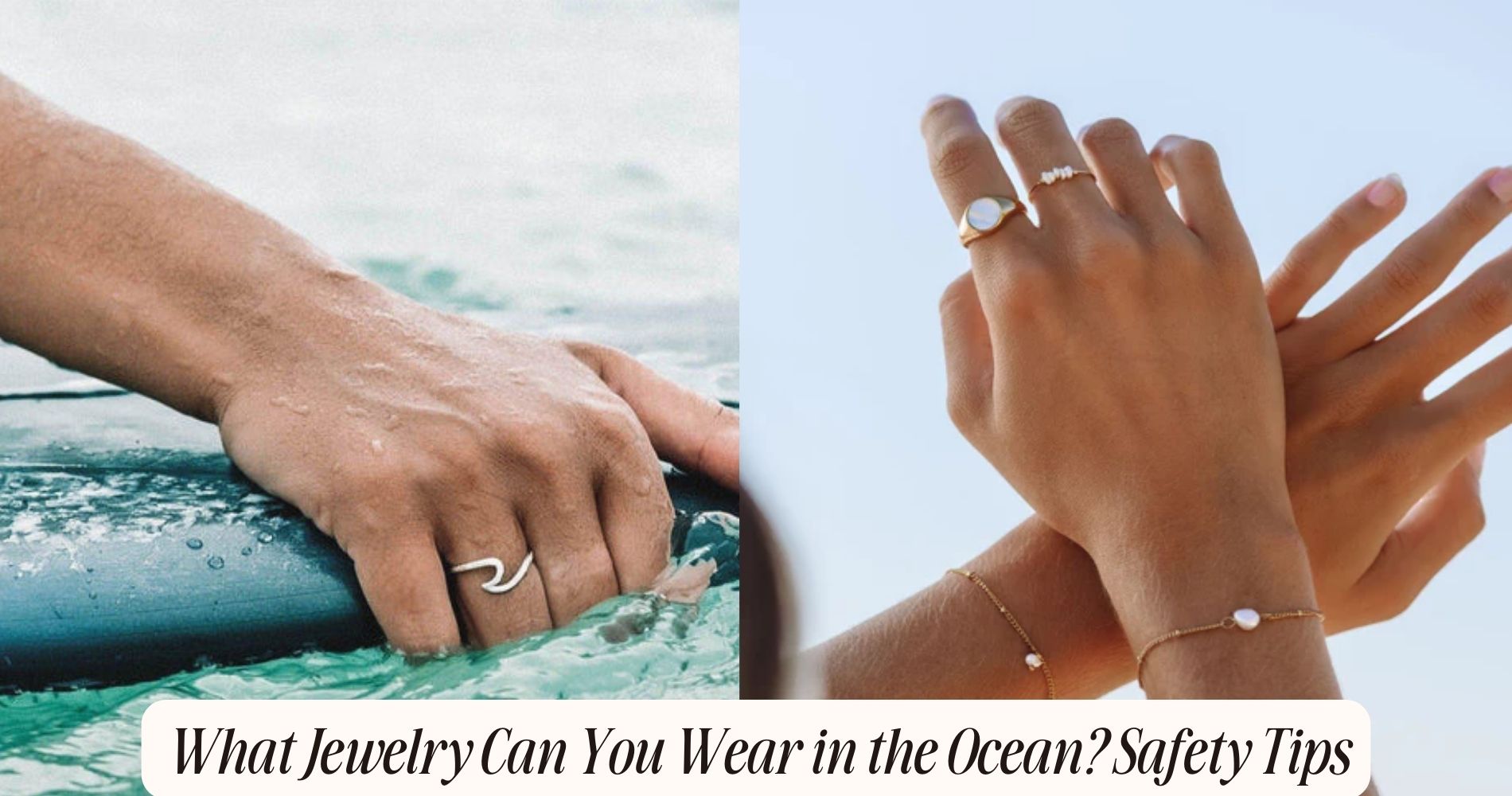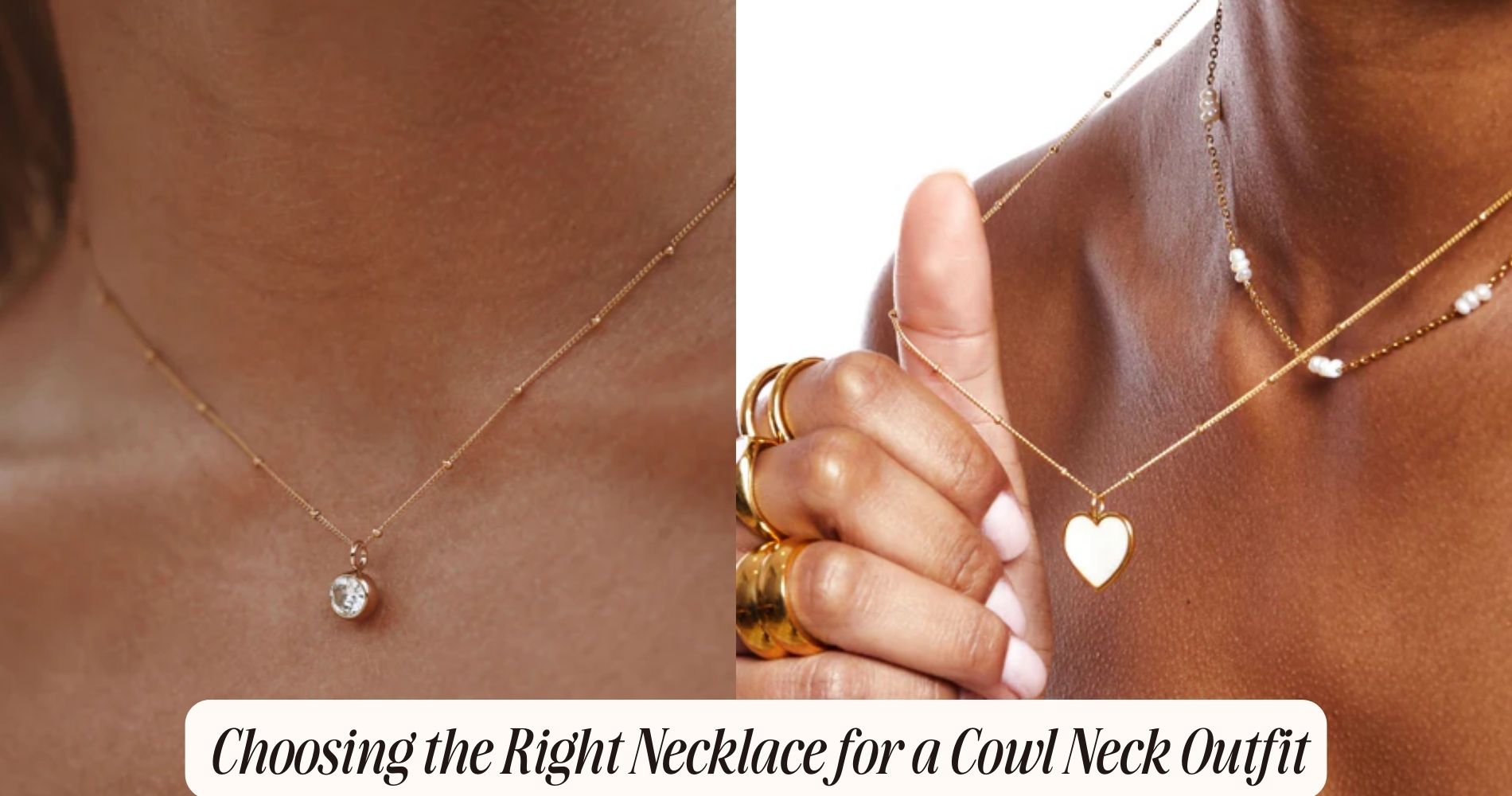
What Jewelry Can You Wear in the Ocean? Safety Tips
When planning for ocean activities, you may wonder, "What jewelry can you wear in the ocean?" The best choices are stainless steel, titanium, or silicone jewelry. These materials are durable and non-toxic, making them safe for both you and marine life, unlike copper or brass, which can be harmful. Ensure your jewelry features waterproof closures like lobster clasps to prevent loss. Always rinse your ocean jewelry with freshwater after each use and store it in a dry place to maintain its condition. Additionally, prioritize diving safety by maintaining your equipment, using the buddy system, and being familiar with emergency procedures. By following these guidelines, you can keep your jewelry safe and help protect the ocean environment. Explore our Beach Jewelry collection, tailored for ocean enthusiasts, to discover more.
Types of Ocean-Safe Jewelry
When choosing ocean-safe jewelry, opt for pieces made from materials like stainless steel, titanium, or silicone to prevent harm to marine life. These materials are durable and non-toxic, making them ideal for beach accessories that won't negatively impact the ocean ecosystem. Sustainable jewelry crafted from these materials not only minimizes the risk of harming marine animals but also guarantees your accessories are long-lasting and eco-friendly.
Stainless steel is a popular choice for ocean-safe jewelry due to its corrosion resistance and strength. It's highly durable, making it suitable for prolonged exposure to saltwater. Titanium is another excellent option known for its biocompatibility and hypoallergenic properties. This material is lightweight yet incredibly strong, making it perfect for beachgoers looking for a reliable accessory. Silicone jewelry is soft, flexible, and resistant to heat and water, making it a comfortable and safe choice for underwater activities.
Materials to Avoid in Water
Certain materials pose a risk to ocean ecosystems and marine life if worn as jewelry in water environments. When selecting jewelry for ocean wear, it's important to avoid materials that can harm the delicate balance of marine ecosystems. Materials such as copper, brass, and bronze should be avoided as they can leach harmful substances into the water, impacting marine organisms. Additionally, jewelry with coatings that can flake off, like certain paints or varnishes, shouldn't be worn in the ocean as these substances can be toxic to marine life.
To prevent rust and corrosion, it's best to opt for jewelry made from materials like stainless steel, titanium, or solid gold. These materials are durable and resistant to the corrosive effects of saltwater. Moreover, choosing jewelry with waterproof designs, such as tightly sealed closures and secure settings for gemstones, can help prevent water damage and ensure the longevity of your pieces.
How to Secure Your Jewelry
To guarantee the safety and longevity of your ocean jewelry, it's vital to properly secure your pieces using reliable closure mechanisms. Securing jewelry for ocean wear necessitates waterproof options to prevent loss or damage.
When selecting jewelry for the ocean, opt for pieces with secure clasps such as lobster clasps or spring rings that can withstand the rigors of water activities. These closure mechanisms are less likely to open accidentally, keeping your jewelry securely fastened.
Additionally, consider using silicone stoppers on earrings to prevent them from falling out while swimming or diving. For bracelets and necklaces, choose designs with adjustable knots or sliding clasps that allow you to customize the fit and ensure they stay in place.
Remember to check the closures periodically for any signs of wear or weakening to prevent potential loss. By utilizing these secure closure methods and waterproof options, you can enjoy your ocean adventures without worrying about losing your precious jewelry.
Cleaning and Maintenance Tips
To maintain the pristine condition of your ocean jewelry and guarantee its durability over time, implementing proper cleaning and maintenance practices is essential. When it comes to storage solutions and prevention, storing your jewelry in a dry and clean environment is vital. Avoid leaving your jewelry in direct sunlight or in humid areas to prevent tarnishing and damage. Consider using individual jewelry pouches or compartments to prevent tangling and scratching between pieces.
For cleaning techniques and care, regularly rinse your ocean jewelry with freshwater after each use to remove salt and other residues. Use a soft cloth to gently pat the jewelry dry and avoid harsh chemicals or cleaners that can damage the materials. For tougher stains or dirt buildup, a mild soap solution and a soft brush can be used to gently scrub the jewelry. Remember to dry the jewelry thoroughly before storing it to prevent any moisture-related issues. By following these simple yet effective cleaning and maintenance tips, you can safeguard the longevity and beauty of your ocean jewelry.
Safety Precautions for Diving
Make sure your diving equipment is properly maintained and inspected before every dive to minimize risks and guarantee a safe underwater experience. The dive buddy system is essential for safety during diving activities. Always dive with a buddy, and keep each other in sight throughout the dive. Before descending, establish communication and agree on hand signals to ensure effective underwater communication. Familiarize yourself with emergency procedures and practice them regularly with your dive buddy. In case of an emergency, remain calm, signal for help, and follow the predetermined emergency protocols.
Underwater communication is primarily done through a series of hand signals due to the inability to speak underwater. Understanding and using these hand signals correctly can prevent misunderstandings and ensure smooth communication between dive buddies. Practicing these signals before each dive is recommended to keep them fresh in your mind.
Frequently Asked Questions
Can I Wear My Engagement Ring in the Ocean?
You should avoid wearing your engagement ring in the ocean. Saltwater and sand can damage the ring and its setting. For ring care, remove it before entering the ocean to maintain its beauty and prevent potential damage.
Are Freshwater Pearls Safe to Wear in Saltwater?
Freshwater pearls are porous and can be damaged by saltwater. Salt can erode the nacre layer, affecting the pearl's luster and durability. It's advisable to avoid wearing freshwater pearls in saltwater to maintain their beauty and longevity.
Is It Safe to Wear Gold Jewelry While Swimming?
Wearing gold jewelry while swimming is generally safe, but it's best to avoid chlorine pools as they can damage the metal. When scuba diving, secure your gold pieces tightly to prevent loss in the water.
Can I Wear a Leather Bracelet in the Ocean?
Wearing a leather bracelet in the ocean is important, but selecting a waterproof option is crucial to prevent damage. Leather accessories might not hold up well to saltwater exposure, so opt for synthetic or water-friendly materials for beach activities.
Are Magnetic Jewelry Pieces Safe for the Ocean?
When it comes to magnetic jewelry in the ocean, there are risks to take into account. The saltwater and sand can damage the magnetic components. Opt for non-magnetic jewelry materials like stainless steel or titanium for water activities.
Conclusion
To sum up, when selecting jewelry to wear in the ocean, opt for pieces made of stainless steel, titanium, or silicone to guarantee durability and safety. Avoid materials such as sterling silver, gold, and gemstones that can be damaged by saltwater.
Secure your jewelry with clasps and closures to prevent loss, and regularly clean and maintain your pieces to prolong their lifespan. Remember to always take necessary safety precautions when diving to protect both yourself and your jewelry.























Leave a comment
This site is protected by hCaptcha and the hCaptcha Privacy Policy and Terms of Service apply.